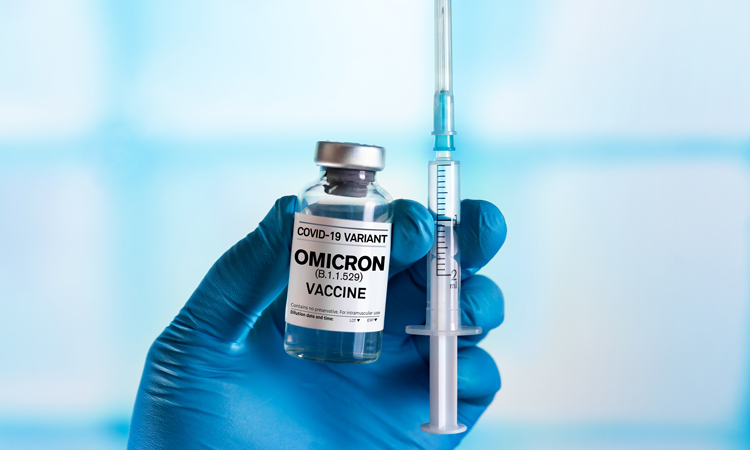New studies look to assess immunogenicity of Omicron-based vaccines
Posted: 27 January 2022 | European Pharmaceutical Review | No comments yet
A new clinical study by Pfizer Inc. and BioNTech SE, and Phase II study by Moderna, are seeking to evaluate the immunogenicity and safety of Omicron-based vaccines and boosters.


Pfizer and BioNTech have announced a clinical study to evaluate the safety, tolerability and immunogenicity of an Omicron-based vaccine candidate in healthy adults 18 to 55 years of age.
The study will have three cohorts examining different regimens of the current Pfizer-BioNTech COVID-19 vaccine or an Omicron-based vaccine.
The study will draw upon some participants from the companies’ Phase III COVID-19 booster study and is part of their ongoing efforts to address Omicron and determine the potential need for variant-based vaccines.
“While current research and real-world data show that boosters continue to provide a high level of protection against severe disease and hospitalisation with Omicron, we recognise the need to be prepared in the event this protection wanes over time and to potentially help address Omicron and new variants in the future,” stated Dr Kathrin U. Jansen, Senior Vice President and Head of Vaccine Research & Development at Pfizer. “Staying vigilant against the virus requires us to identify new approaches for people to maintain a high level of protection, and we believe developing and investigating variant-based vaccines, like this one, are essential in our efforts towards this goal.”
The study will evaluate up to 1,420 participants across the three cohorts:
- Cohort 1 (n = 615): Received two doses of the current Pfizer-BioNTech COVID-19 vaccine 90-180 days prior to enrolment; in the study, participants will receive one or two doses of the Omicron-based vaccine
- Cohort 2 (n = 600): Received three doses of the current Pfizer-BioNTech COVID-19 vaccine 90-180 days prior to enrolment; in the study, participants will receive one dose of the current Pfizer-BioNTech COVID-19 vaccine or the Omicron-based vaccine
- Cohort 3 (n=205): Vaccine-naïve participants will receive three doses of the Omicron-based vaccine
Clinical and real-world data continue to find people who are vaccinated, particularly those that have received a booster, maintain a high level of protection against Omicron, particularly against severe disease and hospitalisation. The companies have previously announced that they expect to produce four billion doses of the Pfizer-BioNTech COVID-19 vaccine in 2022, and this capacity is not expected to change if an adapted vaccine is required.
Moderna Phase II study of mRNA-1273.529
Moderna also had Omicron-related announcements: the first participant has been dosed in the Phase II study of the company’s Omicron-specific booster candidate (mRNA-1273.529), and the publication of neutralising antibody data against the Omicron variant six months following a booster dose in The New England Journal of Medicine.
The NEJM study showed that, while Omicron neutralisation had declined 6.3-fold from peak titers at day 29 post-boost, levels remained detectable in all participants. Neutralising titers against Omicron declined more rapidly than titers against the ancestral strain of the virus (D614G), which declined 2.3-fold over the same time period.
“We are reassured by the antibody persistence against Omicron at six months after the currently authorised 50 µg booster of mRNA-1273. Nonetheless, given the long-term threat demonstrated by Omicron’s immune escape, we are advancing our Omicron-specific variant vaccine booster candidate and we are pleased to begin this part of our Phase II study,” commented Stéphane Bancel, Chief Executive Officer of Moderna. “We are also evaluating whether to include this Omicron-specific candidate in our multivalent booster programme. We will continue to share data with public health authorities to help them make evidence-based decisions on the best booster strategies against SARS-CoV-2.”
This extension of an earlier study will evaluate the immunogenicity, safety and reactogenicity of mRNA-1273.529 as a single booster dose in adults aged 18 years and older in two cohorts: individuals who previously received the two-dose primary series of mRNA-1273 with the second dose being at least six months ago (cohort 1), or who have received the two-dose primary series and a 50µg booster dose of mRNA-1273 with the booster dose being at least three months ago (cohort 2). Participants in both cohorts will receive a single booster dose of mRNA-1273.529.
Moderna expects to enrol approximately 300 participants into each cohort of this study, which will be conducted at up to 24 sites in the US. Additionally, Moderna is evaluating the inclusion of mRNA-1273.529 in its multivalent booster programme.
Related topics
Biologics, Clinical Development, Clinical Trials, Drug Development, mRNA, Research & Development (R&D), Vaccine Technology, Vaccines, Viruses









